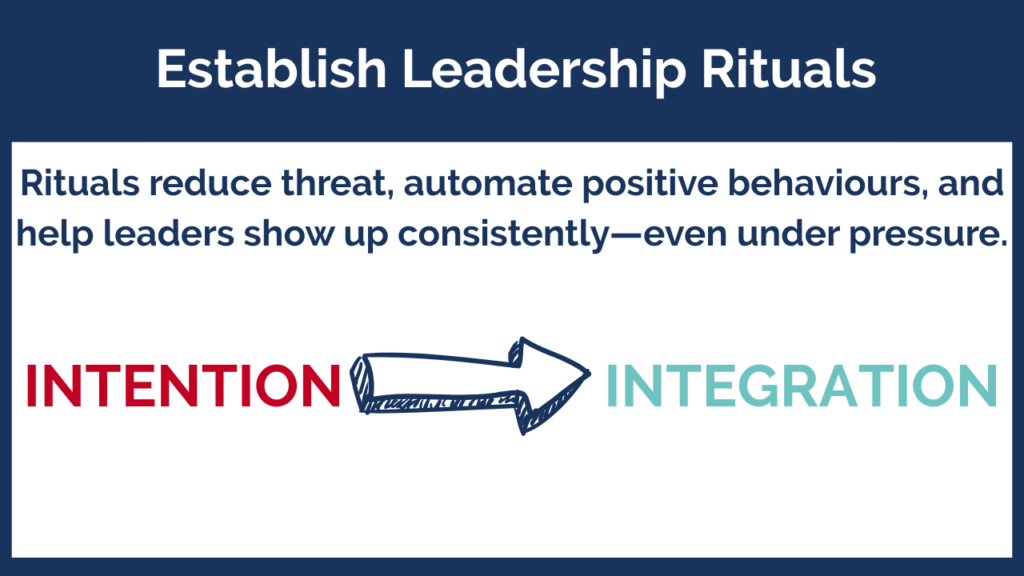
This module is about making leadership visible through repeatable rituals—turning intention into action, and action into consistency.
Leadership isn’t just what you think or say—it’s what people experience, over and over again. The most trusted leaders are often those who lead consistently, even when pressure is high or the pace is fast.
This week, you’ll explore how rituals—small, purposeful habits—can anchor your identity, support your energy, and build trust. You’ll create a Leadership Ritual Stack that works for you, so your values and presence show up even when your bandwidth is low.
🧠 From a neuroscience lens, rituals reduce cognitive load, help regulate your nervous system, and keep your prefrontal cortex online—allowing for clearer thinking, emotional control, and stronger decision-making.
Why this matters: In busy, high-stakes environments, rituals reduce friction, enhance focus, and make your leadership dependable. Especially when others are looking for stability, your rituals become their safety cues.
Think about a senior leader preparing for a high-stakes performance review conversation. Before walking into the room, she always takes three deep breaths, reflects on her leadership values, and anchors herself in the intention: “Lead with strength and kindness.”
She does this every time. Her team may never see that 60-second ritual—but they feel the outcome. She’s composed, calm, clear, and centred. Over time, that consistency builds trust. They know what version of her will walk into the room, even under pressure.
From intention to integration.
🧠 Neuroscience Insight: Rituals reduce threat, automate positive behaviours, and help leaders show up consistently—even under pressure.
Its about:
🧭 Creating consistency through rhythms and rituals that help the team feel grounded and focused.
🔁 Moving from reaction to intention by anchoring leadership in repeatable practices rather than daily firefighting.
🧘 Reducing stress and increasing confidence by giving the brain a sense of control and stability.
This week’s shift is about turning intention into action. Design one simple ritual that makes your leadership identity automatic — bringing clarity, reducing noise, and moving you from reactive to proactive.
Quick Win First. Choose Your Layer.
Choose one moment in your day or week to anchor with a simple, repeatable ritual. It should take no more than 2–5 minutes.
Examples:

Create a 3-part Leadership Ritual Stack to support your energy, identity and influence:
Moment | Ritual Example |
Start of Day | 3 breaths + set leadership intention |
During Interactions | Ask: “How do I want to be experienced in this conversation?” Or “What would strong and kind leadership look like now?” |
End of Week | 15-min Friday reset: Reflect, realign, reset |
Use the Leadership Ritual Builder Template (linked below) to name, test and embed these micro-practices over the next 7–10 days.
This reflection helps track your shift from reactive to ritualised leadership—and how that’s experienced by others.